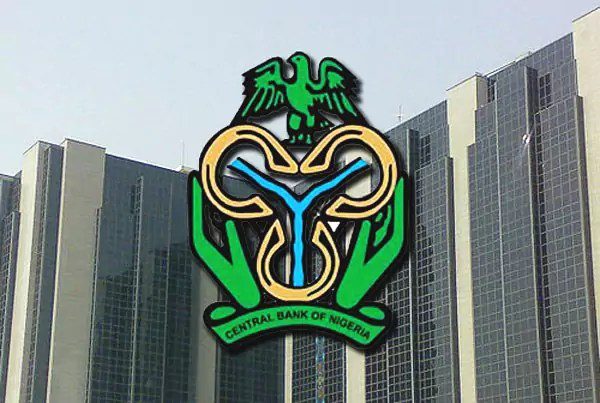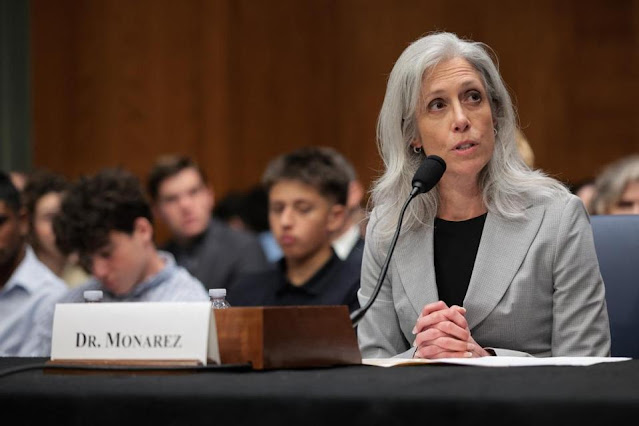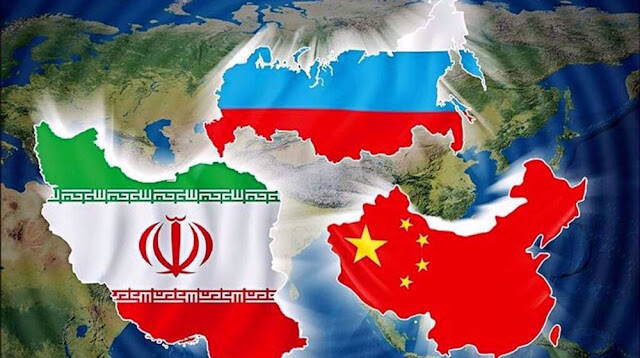On August 27, 2025, Dr. Olayemi Cardoso, Governor of the Central Bank of Nigeria (CBN), called on manufacturers to spearhead efforts to diversify Nigeria’s foreign exchange (forex) earnings and reduce the country’s heavy reliance on crude oil, which accounts for over 80 percent of forex inflows. Speaking at the 54th Annual General Meeting (AGM) of the Manufacturers Association of Nigeria (MAN), Apapa Branch, themed “Complementing the Oil Sector, a Major Forex Earner: Strategy for Manufacturing to Fill the Gap,” Cardoso emphasized the manufacturing sector’s potential to conserve forex, boost exports, create jobs, and enhance macroeconomic stability. Represented by Mr. Aliyu Ashiru, Director of the Trade and Exchange Department, Cardoso outlined a vision for a coordinated national strategy supported by incentives and policies to position manufacturing as a key driver of Nigeria’s economic transformation. This article explores Cardoso’s appeal, the challenges facing the manufacturing sector, the collaborative efforts proposed by stakeholders, and the broader implications for Nigeria’s economic resilience.
The Urgent Need for Economic Diversification
Nigeria’s economy has long been tethered to crude oil, which accounts for more than 80 percent of its foreign exchange earnings and a significant portion of government revenue. While oil has been a cornerstone of Nigeria’s economy, its volatility on the global market exposes the country to external shocks, such as price fluctuations and supply disruptions. The 2020 global oil price crash, triggered by the COVID-19 pandemic, and subsequent geopolitical tensions have underscored the risks of this dependency, leading to foreign exchange shortages, currency depreciation, and inflationary pressures.
Speaking through Mr. Aliyu Ashiru, Dr. Cardoso highlighted the manufacturing sector’s potential to address these challenges by diversifying Nigeria’s forex earnings. “The manufacturing sector holds vast potential to conserve foreign exchange, boost exports of value-added goods, create employment, and strengthen macroeconomic stability,” he said. By producing goods for both domestic consumption and export, manufacturers can reduce Nigeria’s reliance on imported products, preserve foreign exchange reserves, and generate new revenue streams through international trade.
Cardoso’s call for diversification aligns with the broader economic vision of President Bola Tinubu’s administration, which has prioritized reducing oil dependency since taking office in May 2023. The administration’s Renewed Hope Agenda emphasizes economic diversification, job creation, and infrastructure development, with manufacturing identified as a critical pillar. By leveraging Nigeria’s abundant natural resources, skilled workforce, and strategic geographic position, the manufacturing sector can drive sustainable growth and enhance economic resilience.
A Coordinated National Strategy for Manufacturing
To unlock the manufacturing sector’s potential, Cardoso advocated for a “deliberate, coordinated, and long-term national strategy” that aligns trade, monetary, and fiscal policies. “The policy must be stable, predictable, and aligned with trade, monetary, and fiscal frameworks,” he stated, emphasizing the importance of a consistent and enabling environment for manufacturers. Policy instability, characterized by frequent changes in regulations and incentives, has historically undermined investor confidence and hindered long-term planning in Nigeria’s manufacturing sector.
Cardoso proposed a suite of incentives to support manufacturers, particularly those focused on penetrating international markets. These include tax holidays, duty waivers on machinery, export rebates, and investment guarantees. Such measures would reduce production costs, enhance competitiveness, and encourage manufacturers to invest in export-oriented industries. By prioritizing high-value sectors such as agro-processing, petrochemicals, and solid minerals, Nigeria can leverage its comparative advantages to capture global market share.
Backward integration, which involves developing local supply chains for raw materials, was another key focus of Cardoso’s address. In sectors like agro-processing, where Nigeria has significant agricultural resources, backward integration can reduce reliance on imported inputs, lower costs, and create jobs across the value chain. Similarly, in petrochemicals and solid minerals, local sourcing of raw materials can drive industrialization and reduce foreign exchange expenditure. Cardoso assured manufacturers of the CBN’s commitment to supporting these efforts through proactive policies and targeted financing, such as concessional loans and export promotion programs.
MAN’s Perspective: Addressing Structural Challenges
Otunba Francis Meshioye, President of MAN, echoed Cardoso’s call for diversification, emphasizing the urgency of broadening Nigeria’s forex base in light of persistent oil price volatility. “The persistent volatility in oil prices demonstrates the urgency of broadening Nigeria’s forex base,” Meshioye said, highlighting the manufacturing sector’s role in stabilizing the economy. He identified several priority areas for action, including improved infrastructure, lower production costs, better access to affordable finance, and the promotion of high-export-potential products.
Infrastructure deficits, particularly in transportation and power supply, remain significant barriers to manufacturing competitiveness in Nigeria. Poor road networks in industrial clusters, such as Amuwo-Odofin and Apapa, increase logistics costs and disrupt supply chains. Meshioye called for government intervention to rehabilitate critical road networks, emphasizing that such investments would enhance operational efficiency and reduce costs for manufacturers.
Access to affordable finance is another critical challenge. High interest rates, driven by the CBN’s monetary policy tightening to combat inflation, have made borrowing costly for manufacturers. Meshioye urged the government to provide concessional financing options, such as single-digit interest loans, to support capital-intensive industries. He also advocated for tax-break arrangements, which would incentivize manufacturers to invest in expansion and innovation while contributing to government revenue through other channels.
The promotion of high-export-potential products, such as processed agricultural goods, textiles, and solid minerals, was highlighted as a key strategy for boosting forex earnings. By focusing on value-added exports, Nigeria can compete in global markets, reduce import dependency, and strengthen its trade balance. Meshioye expressed MAN’s willingness to collaborate with the government and regulatory agencies to achieve these goals, emphasizing a partnership-driven approach to economic diversification.
Lagos State’s Commitment to Manufacturing
Lagos State Governor Mr. Babajide Sanwo-Olu, represented by Mrs. Folashade Ambrose-Medebem, Commissioner for Commerce, Cooperatives, Trade and Investment, reaffirmed the state’s commitment to creating an enabling environment for businesses. As Nigeria’s commercial and industrial hub, Lagos plays a critical role in supporting the manufacturing sector, hosting major industrial clusters in areas like Apapa, Amuwo-Odofin, and Ikeja.
Sanwo-Olu highlighted Lagos’s focus on agro-industrial linkages and innovation-driven manufacturing to enhance economic resilience. Agro-industrial linkages, which connect agricultural production to manufacturing processes, are particularly important for Nigeria, given its vast agricultural resources. By processing crops like cassava, cocoa, and palm oil locally, manufacturers can add value, create jobs, and reduce import dependency. Sanwo-Olu emphasized that reducing reliance on imported goods is crucial for sustainable growth, aligning with the federal government’s broader economic strategy.
Lagos’s investments in infrastructure, such as the Lagos-Badagry Expressway and the Lekki Free Trade Zone, are designed to support manufacturing and trade. The state is also promoting innovation through initiatives like technology hubs and industrial parks, which provide manufacturers with access to modern facilities and skilled labor. These efforts reflect Lagos’s role as a pacesetter in Nigeria’s economic transformation, setting a model for other states to follow.
Operational Challenges Facing Manufacturers
Mr. Raphael Danilola, Chairman of MAN Apapa Branch, provided a sobering assessment of the operational challenges facing manufacturers, which undermine their competitiveness and ability to contribute to forex earnings. He identified poor road networks, unreliable power supply, soaring logistics costs, insecurity, and persistent forex volatility as critical issues requiring urgent government intervention.
Poor road networks in industrial clusters like Apapa, a major hub for manufacturing and port activities, increase transportation costs and delay deliveries, impacting profitability. The unreliable power supply, a longstanding challenge in Nigeria, forces manufacturers to rely on expensive diesel generators, further driving up production costs. According to MAN, electricity costs account for up to 40 percent of production expenses for some manufacturers, significantly eroding their competitiveness.
Soaring logistics costs, exacerbated by rising fuel prices following the removal of fuel subsidies in May 2023, have added to manufacturers’ burdens. Insecurity, including incidents of kidnapping and vandalism, disrupts operations and deters investment in industrial areas. Forex volatility, driven by Nigeria’s reliance on oil revenue and limited export diversification, makes it difficult for manufacturers to plan and procure raw materials, many of which are imported.
Danilola’s appeal for government action reflects the broader sentiment among manufacturers, who see collaboration with the government as essential for overcoming these challenges. By addressing infrastructure deficits, improving access to finance, and stabilizing the forex market, the government can create a more enabling environment for manufacturers to thrive and contribute to economic diversification.
The Broader Economic Context
The call for manufacturing-led diversification comes at a critical juncture for Nigeria’s economy. The country has faced significant economic challenges in recent years, including inflation, currency depreciation, and foreign exchange shortages. The CBN’s monetary policy tightening, with interest rates rising to 26.75 percent in July 2025, has aimed to stabilize the naira and curb inflation, which reached 34.2 percent in the same period. However, these measures have increased borrowing costs, impacting manufacturers and other businesses.
The operational success of the Dangote Refinery, which reached full capacity in 2024, has been a bright spot, reducing Nigeria’s reliance on imported petroleum products and easing pressure on foreign exchange reserves. However, the manufacturing sector’s potential to drive forex earnings remains underutilized, with non-oil exports accounting for only a small fraction of total exports. By scaling up manufacturing, Nigeria can diversify its export base, reduce import dependency, and strengthen its balance of payments.
The Tinubu administration’s Renewed Hope Agenda provides a framework for addressing these challenges, with a focus on infrastructure, job creation, and financial inclusion. The agenda’s emphasis on public-private partnerships aligns with MAN’s call for collaboration, offering opportunities to leverage government resources and private sector innovation to drive manufacturing growth.
Opportunities for Manufacturers
The manufacturing sector presents significant opportunities for Nigeria’s economic transformation. With a population of over 200 million and a growing consumer market, Nigeria offers a vast domestic market for manufactured goods. By focusing on value-added products, such as processed foods, textiles, and building materials, manufacturers can meet local demand while reducing reliance on imports.
Export markets also offer significant potential. West Africa, with a population of over 400 million, represents a growing market for Nigerian goods, particularly in agriculture and consumer products. The African Continental Free Trade Area (AfCFTA), launched in 2021, provides a platform for manufacturers to access regional markets, boosting forex earnings and fostering economic integration.
Government incentives, such as tax holidays and export rebates, can further enhance manufacturers’ competitiveness. By reducing production costs and providing access to affordable finance, the government can encourage investment in high-growth sectors like agro-processing and solid minerals. The CBN’s targeted financing programs, such as the Anchor Borrowers’ Programme and the Real Sector Support Facility, offer additional support for manufacturers seeking to scale up operations.
Challenges and the Path Forward
Despite these opportunities, manufacturers face significant challenges that require coordinated action. Infrastructure deficits, particularly in power and transportation, remain a major barrier to competitiveness. The government’s investments in renewable energy and road rehabilitation are steps in the right direction, but sustained funding and implementation are critical for success.
Forex volatility, driven by Nigeria’s oil dependency, continues to pose challenges for manufacturers reliant on imported raw materials. The CBN’s efforts to stabilize the naira, including interventions in the forex market, are essential for creating a predictable environment for manufacturers. Additionally, addressing insecurity through improved policing and community engagement is crucial for fostering a stable business environment.
Collaboration between the government, manufacturers, and regulatory agencies like the CBN and MAN is key to overcoming these challenges. By aligning policies and incentives, stakeholders can create a synergistic approach to economic diversification, ensuring that manufacturing becomes a cornerstone of Nigeria’s economy.
Conclusion
The call by CBN Governor Dr. Olayemi Cardoso on August 27, 2025, for manufacturers to lead Nigeria’s economic diversification efforts marks a pivotal moment in the country’s journey toward reducing oil dependency. Speaking at the 54th AGM of MAN’s Apapa Branch, Cardoso outlined a vision for a coordinated national strategy supported by incentives, backward integration, and targeted financing. Echoed by MAN President Otunba Francis Meshioye and Lagos State Governor Babajide Sanwo-Olu, this vision emphasizes the manufacturing sector’s potential to conserve forex, boost exports, and create jobs.
Despite challenges like infrastructure deficits, high production costs, and forex volatility, the manufacturing sector offers significant opportunities for economic growth. By addressing these challenges through collaboration and policy reform, Nigeria can position manufacturing as a key driver of forex earnings and macroeconomic stability. As the country navigates its economic transformation, the partnership between manufacturers, the government, and regulatory agencies will be critical to building a resilient and diversified economy.






